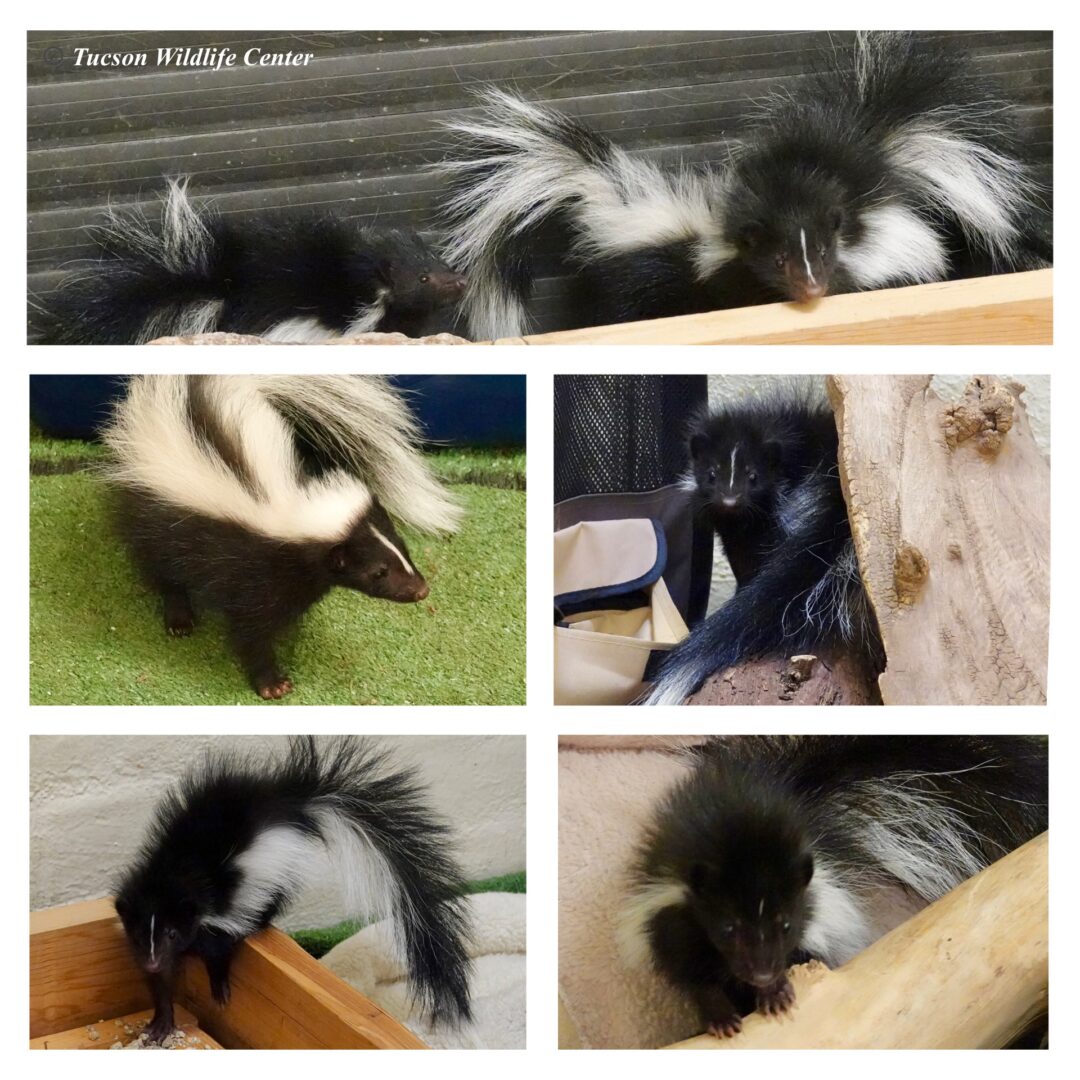
Orphaned Skunk Kits
Tucson Wildlife Center recently admitted five orphaned skunk kits—three sibling hooded skunks and two striped skunks. The trio of hooded skunks arrived healthy aside from a mild flea infestation, while one of the striped skunks was covered in ticks. The last striped skunk is being treated for a fibula/tibia fracture and is currently housed separately in a playpen. This allows him to interact with the others without risking damage to his fixator—the device used to stabilize his broken bones. He will be reunited with the group once his pins are removed, likely next week.
The video shows four of the five little stinkers at mealtime. Insects make up a large portion of the diet for both hooded and striped skunks. Using their strong front claws, they dig in soil, leaf litter, and rotting logs in search of beetles, crickets and other invertebrates. This natural foraging behavior plays an important role in controlling insect populations. To support those instincts, our wildlife care team provides natural enrichment and a sandbox where the kits can dig and forage for mealworms.
All five kits will be raised together and released as a cohort once they are ready to thrive in the wild. While they may remain near each other for a short time after release, skunks are naturally solitary, and each will eventually go off to establish its own territory. Stay tuned for release updates. If you would like to help patients like these skunk kits, click this link to donate,
Another way you can contribute is to visit our “wish list” on Amazon or Chewy below:
We appreciate it, as will all the wild animals in our care!

Show your support with a minimum $25 donation and we’ll send you a “KEEP TUCSON WILD” sticker. Click the bumper sticker to donate.

